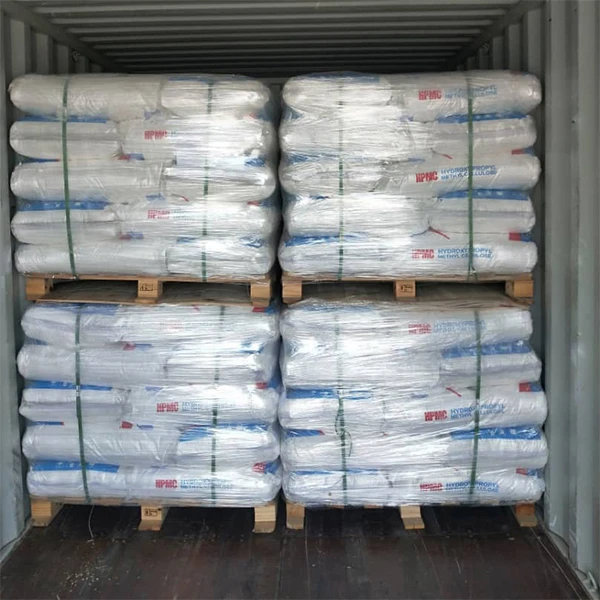Understanding Tylose Powder Applications and Benefits
Tylose powder, scientifically known as hydroxypropyl methylcellulose (HPMC), is a versatile polymer that has gained significant attention across various industries due to its unique properties. This water-soluble cellulose derivative is created through a series of chemical reactions involving cellulose; its ability to form gels, retain moisture, and act as a thickening agent makes it invaluable in numerous applications.
What is Tylose Powder?
Tylose powder is a white, odorless powder that is soluble in cold water, which enables it to form a continuous gel-like solution. It possesses excellent thickening, binding, and film-forming properties, characteristics that are significant for various commercial uses. Tylose is primarily composed of cellulose, a natural polymer found in the cell walls of plants, which underscores its biocompatibility and environmental friendliness.
Key Properties of Tylose Powder
1. Water Retention One of the standout features of Tylose powder is its ability to retain moisture effectively. This property is particularly useful in applications like construction and food additives, where maintaining moisture levels is critical.
2. Thickening Agent Tylose acts as a thickener, creating a stable viscosity in liquids without altering their other properties. This feature is beneficial in manufacturing coatings, adhesives, and various food products.
3. Film Formation The film-forming ability of Tylose allows it to create a barrier that can protect products from moisture and other environmental factors, making it useful in packaging and protective coatings.
4. Biodegradable As a cellulose derivative, Tylose is biodegradable, which aligns with the growing demand for eco-friendly materials in today’s market.
Applications of Tylose Powder
1. Construction Industry Tylose powder is widely used in the construction sector, particularly in cement and mortar formulations. Its water-retaining properties enable improved workability and adhesion, resulting in stronger bonds in building materials. Moreover, it helps in reducing cracking and increases the longevity of structures.
tylose powder

2. Food Industry In food applications, Tylose acts as a thickening and stabilizing agent. It is often used in sauces, dressings, and bakery products to maintain texture and prevent separation. Tylose also serves as a fat replacer in low-fat products, providing a creamy texture without the added calories.
3. Pharmaceuticals The pharmaceutical industry employs Tylose for its optimal binding properties in tablet formulations and as a controlled-release agent. The use of Tylose enhances the stability and effectiveness of medicinal products by improving their texture and consistency.
4. Cosmetics and Personal Care In cosmetics, Tylose serves as a thickener and stabilizer in lotions, creams, and gels. Its ability to provide a smooth texture while retaining moisture makes it an essential ingredient in many personal care products.
5. 3D Printing With the emergence of 3D printing technology, Tylose powder has been used as a binder in various 3D printing applications. It assists in improving the quality of prints and providing better dimensional accuracy, which is crucial for manufacturers.
Benefits of Using Tylose Powder
1. Cost-Effective Tylose powder is generally cost-effective when compared to other thickening agents, offering an economical solution without compromising quality.
2. Versatility Its multi-functional characteristics allow for diverse applications across industries, providing manufacturers with an adaptable resource.
3. Health and Safety Being a cellulose derivative, Tylose is non-toxic and generally regarded as safe for consumption, making it suitable for food and pharmaceutical uses.
4. Enhanced Product Quality The incorporation of Tylose powder leads to improved textural qualities in food products, better adhesion in construction materials, and enhanced stability in pharmaceuticals and cosmetics.
Conclusion
Tylose powder exemplifies the remarkable capabilities of cellulose derivatives in contemporary applications. With its diverse properties, it is no wonder that Tylose continues to be a pivotal ingredient in various industries, from construction to food processing and beyond. As the demand for innovative and sustainable products rises, Tylose is poised to play an even more significant role, providing cost-effective and environmentally friendly solutions to meet global challenges. The future looks bright for Tylose powder, solidifying its place as a crucial component in industrial and consumer applications alike.
-
The Versatility of Industrial Additives: Mhec, Hpmc, And Wall Putty SolutionsNewsMar.28,2025
-
The Importance of HPMC in Modern IndustriesNewsMar.28,2025
-
Partnering with Reliable Manufacturers for Optimal ResultsNewsMar.28,2025
-
Enhancing Construction Performance with Redispersible Polymer PowdersNewsMar.28,2025
-
Enhancing Construction and Household Products with Advanced AdditivesNewsMar.28,2025
-
Building Strong Foundations with Key Construction MaterialsNewsMar.28,2025






